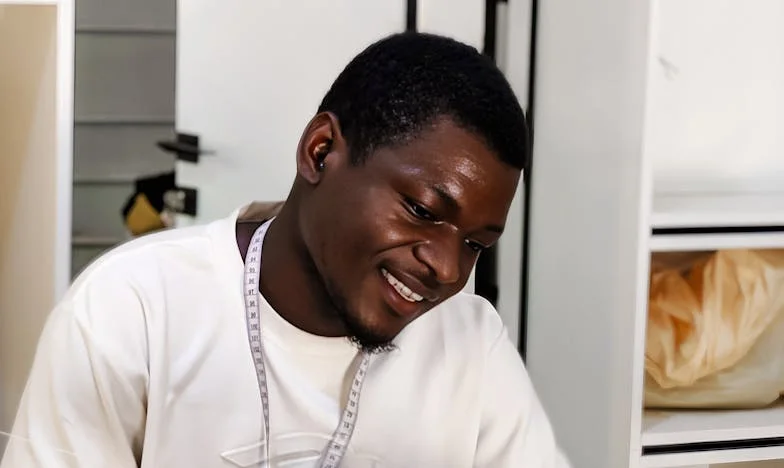When the Snow Melts: A Daughter’s Reckoning
“Why did you have to leave me alone with her?” My breath came out in clouds as I whispered to the stone, the letters of my father’s name carved deep, frost clinging to their edges. The city was thawing, the last of winter’s snow melting into dirty puddles, but here in the cemetery, white still covered the ground, clinging stubbornly to the past, just like me.
I had wandered between graves longer than I should have, the cold biting through my boots, until I found my parents’ tombstone. They lay together now, though Dad had died when I was fifteen, shattered glass and twisted metal on I-95. Mom had lived another decade, but it was as if she buried herself early, too—inside her grief, shutting me out.
My phone buzzed in my pocket. I ignored it. My older brother, Mark, had been calling all week. Ever since the lawyer’s letter arrived, he’d been relentless. “Annie, you need to come home. We need to talk about the house.” But he didn’t mean talk. He meant argue.
I knelt down, my jeans soaking up the cold. “Dad, you’d know what to do. You always did.”
A memory flashed: Dad tossing me the keys to his old Chevy, grinning as I shrieked with joy. “Just don’t tell your mom, kiddo.”
But Mom always found out. After the accident, she found out everything—how to control every part of my life so nothing else could slip away.
“Annie?”
I turned. Mark stood a few feet away, hands jammed into his jacket pockets, eyes red from the cold—or maybe from what we’d both lost.
“I called you.”
“I know.”
He shifted, the snow crunching under his boots. “You’re not answering my texts.”
“There’s nothing to say.”
He laughed, sharp and bitter. “There’s a house to sell. Debts to pay. You can’t just hide up in Boston and pretend none of this matters.”
I stood, brushing off my knees. “I’m not pretending.”
“Then why haven’t you been home? Not for Christmas, not for Mom’s birthday—”
I cut him off. “Because every time I come back, I feel like I’m fifteen again. Like I’m the reason she cried every night.”
His face softened. “She wasn’t. You know that.”
“Do I?”
Mark sighed, looking down at our parents’ names. “She missed you. She just didn’t know how to show it.”
I swallowed, throat tight. “She blamed me. For Dad’s death. For leaving. For not being the daughter she wanted.”
He shook his head. “She blamed herself.”
We stood in silence, the only sound the distant hum of the city, life moving on beyond the cemetery gates. I wanted to believe him. But I remembered: the slammed doors, the nights she didn’t come home, the silence that grew between us like ice.
Mark pulled out a yellowed envelope. “The lawyer found this in Mom’s desk. It’s for you.”
I hesitated, then took it. My name, in her handwriting. For a moment, I was a little girl again, watching her write grocery lists, her pen looping careful letters.
I tore it open. Inside was a letter, and a faded photograph—me at eight, standing with both of them in front of the old house. Everyone was smiling. I couldn’t remember the last time I’d smiled like that.
The letter was short. “Annie, I’m sorry for everything I said and didn’t say. I missed your dad every day, but I missed you, too. I wish I’d known how to show you love instead of fear. I hope you can forgive me. Love, Mom.”
My breath hitched. Tears froze on my cheeks. After all these years, after all the fights and silences, she finally said it. Too late for her to hear my answer.
Mark put a hand on my shoulder. “We’re selling the house, but there’s enough for you to start over. She wanted that.”
I shook my head, staring at the photo. “I don’t want money. I want—”
“What?”
I looked at him, voice small. “I want a family. I want to stop feeling like I’m on the outside looking in.”
He nodded, his own eyes wet. “You could come back. Stay with us—me, Jen, the kids. It’s not too late, Annie.”
But it felt too late. The years had stretched out, putting miles between us. I had run to Boston for college and never really come home.
I looked back at the grave, snow melting just a little around the edges. “Why is it so hard to forgive someone who’s already gone?”
Mark squeezed my shoulder. “Maybe forgiving them means forgiving yourself, too.”
We stood there until the cold became too much. As we walked back to the car, I looked at the house lights twinkling beyond the cemetery, families inside, laughter leaking out into the night.
Was it possible to start over? To let go of the anger, the guilt, the things left unsaid?
I pressed my hand to my heart, feeling the ache and the hope there. “What would you do, Dad?” I whispered. “How do you forgive, even when it hurts?”
Maybe you have to choose to thaw the snow yourself, one step at a time. Or maybe you just need someone willing to stand in the cold with you, until you’re ready to come home.
Does anyone else struggle to forgive the ones they’ve lost? Or is it just me, still wandering the snowy paths, looking for a way back?
